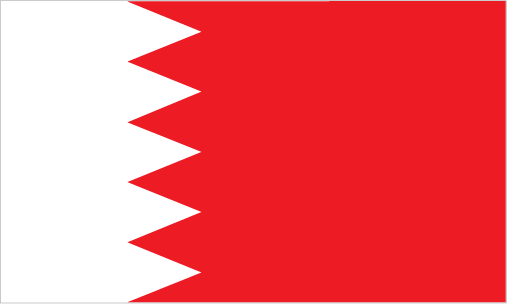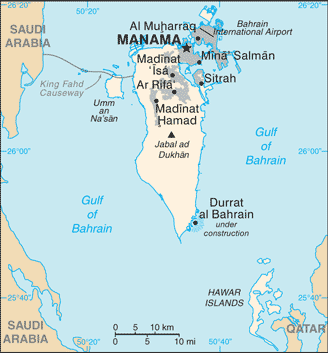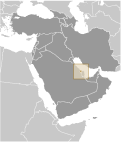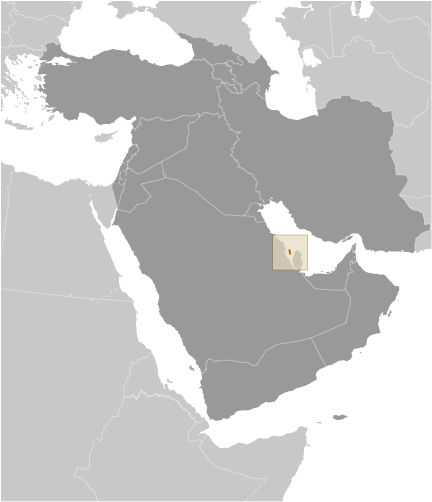|

Administrative divisions (GPS Maps)
Geography
People and Society
Government
Economy
Communications
Transportation
Military |
 |
 In 1783, the Sunni Al-Khalifa family captured Bahrain from the Persians. In order to secure these holdings, it entered into a series of treaties with the UK during the 19th century that made Bahrain a British protectorate. The archipelago attained its independence in 1971. Facing declining oil reserves, Bahrain has turned to petroleum processing and refining and has transformed itself into an international banking center. Bahrain's small size and central location among Persian Gulf countries require it to play a delicate balancing act in foreign affairs among its larger neighbors. In addition, the Sunni-led government has struggled to manage relations with its large Shia-majority population. During the mid-to-late 1990s, Shia activists mounted a low-intensity uprising to demand that the Sunni-led government stop systemic economic, social, and political discrimination against Shia Bahrainis. King HAMAD bin Isa Al-Khalifa, after succeeding his late father in 1999, pushed economic and political reforms in part to improve relations with the Shia community. After boycotting the country's first round of democratic elections under the newly-promulgated constitution in 2002, Shia political societies participated in 2006 and 2010 in legislative and municipal elections and Wifaq, the largest Shia political society, won the largest bloc of seats in the elected lower-house of the legislature both times. In early 2011, Bahrain's fractious opposition sought to ride a rising tide of popular Arab protests to petition for the redress of popular grievances. In mid-March 2011, with the backing of Gulf Cooperation Council (GCC) capitals, King HAMAD put an end to the mass public gatherings and increasingly disruptive civil disobedience by declaring a state of emergency. Manama also welcomed a contingent of mostly Saudi and Emirati forces as part of a GCC deployment intended to help Bahraini security forces maintain order. Since that time, intermittent efforts at political dialogue between the government and opposition have remained at a stalemate. The Bahrain Independent Commission of Inquiry (BICI), formed in June 2011 to investigate abuses during the unrest and state of emergency, released its final report in November 2011. The King fully endorsed the report, and since then Manama has begun to implement many of the BICI's recommendations, including improving policing procedures, reinstating fired workers, rebuilding some mosques, and establishing a compensation fund for those affected by the unrest and crackdown. Despite this progress, street protests have grown increasingly violent since the beginning of 2012. In 1783, the Sunni Al-Khalifa family captured Bahrain from the Persians. In order to secure these holdings, it entered into a series of treaties with the UK during the 19th century that made Bahrain a British protectorate. The archipelago attained its independence in 1971. Facing declining oil reserves, Bahrain has turned to petroleum processing and refining and has transformed itself into an international banking center. Bahrain's small size and central location among Persian Gulf countries require it to play a delicate balancing act in foreign affairs among its larger neighbors. In addition, the Sunni-led government has struggled to manage relations with its large Shia-majority population. During the mid-to-late 1990s, Shia activists mounted a low-intensity uprising to demand that the Sunni-led government stop systemic economic, social, and political discrimination against Shia Bahrainis. King HAMAD bin Isa Al-Khalifa, after succeeding his late father in 1999, pushed economic and political reforms in part to improve relations with the Shia community. After boycotting the country's first round of democratic elections under the newly-promulgated constitution in 2002, Shia political societies participated in 2006 and 2010 in legislative and municipal elections and Wifaq, the largest Shia political society, won the largest bloc of seats in the elected lower-house of the legislature both times. In early 2011, Bahrain's fractious opposition sought to ride a rising tide of popular Arab protests to petition for the redress of popular grievances. In mid-March 2011, with the backing of Gulf Cooperation Council (GCC) capitals, King HAMAD put an end to the mass public gatherings and increasingly disruptive civil disobedience by declaring a state of emergency. Manama also welcomed a contingent of mostly Saudi and Emirati forces as part of a GCC deployment intended to help Bahraini security forces maintain order. Since that time, intermittent efforts at political dialogue between the government and opposition have remained at a stalemate. The Bahrain Independent Commission of Inquiry (BICI), formed in June 2011 to investigate abuses during the unrest and state of emergency, released its final report in November 2011. The King fully endorsed the report, and since then Manama has begun to implement many of the BICI's recommendations, including improving policing procedures, reinstating fired workers, rebuilding some mosques, and establishing a compensation fund for those affected by the unrest and crackdown. Despite this progress, street protests have grown increasingly violent since the beginning of 2012. |
|
Advertisements
|
Advertisements
|
Administrative divisions (914 GPS Maps)
--- There are no comments yet ---
Add a new comment:
|
Advertisement
Members area
Bahrain (Manama):
GPS points from Bahrain (Manama)
|





